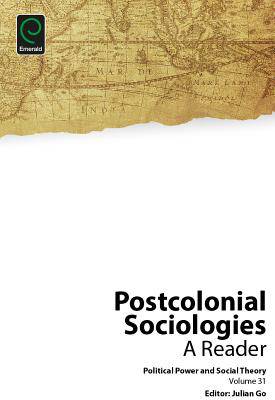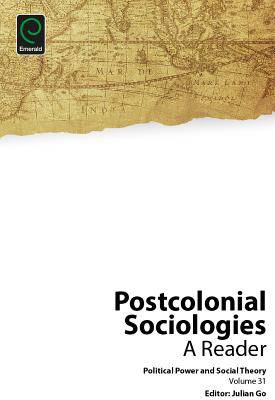
- Afhalen na 1 uur in een winkel met voorraad
- Gratis thuislevering in België vanaf € 30
- Ruim aanbod met 7 miljoen producten
- Afhalen na 1 uur in een winkel met voorraad
- Gratis thuislevering in België vanaf € 30
- Ruim aanbod met 7 miljoen producten
Zoeken
€ 48,95
+ 97 punten
Omschrijving
Postcolonial theory has mostly been confined to literary studies and the humanities, but it has been slowly making its way into social science. This is a welcome development but poses new challenges. How can postcolonial thought be most fruitfully translated and incorporated into sociology? This special volume brings together leading sociologists to offer some answers and examples. The chapters offer new postcolonial readings of canonical thinkers like Karl Marx, Max Weber, Emile Durkheim and Robert Park; consider whether or not postcolonial theory is compatible with sociology; explore the relationship between knowledge and colonial power; offer critical perspectives on the sociology of race; ponder the implications of postcolonial theory for global sociology; creatively employ postcolonial concepts such as hybridity; and excavate the social theories of occluded thinkers in India. This volume will be an important guide for scholars and students in the social sciences who are interested in what postcolonial thought has to offer.
Specificaties
Betrokkenen
- Uitgeverij:
Inhoud
- Aantal bladzijden:
- 344
- Taal:
- Engels
- Reeks:
- Reeksnummer:
- nr. 31
Eigenschappen
- Productcode (EAN):
- 9781786353269
- Verschijningsdatum:
- 26/08/2016
- Uitvoering:
- Paperback
- Formaat:
- Trade paperback (VS)
- Afmetingen:
- 152 mm x 226 mm
- Gewicht:
- 521 g

Alleen bij Standaard Boekhandel
+ 97 punten op je klantenkaart van Standaard Boekhandel
Beoordelingen
We publiceren alleen reviews die voldoen aan de voorwaarden voor reviews. Bekijk onze voorwaarden voor reviews.










